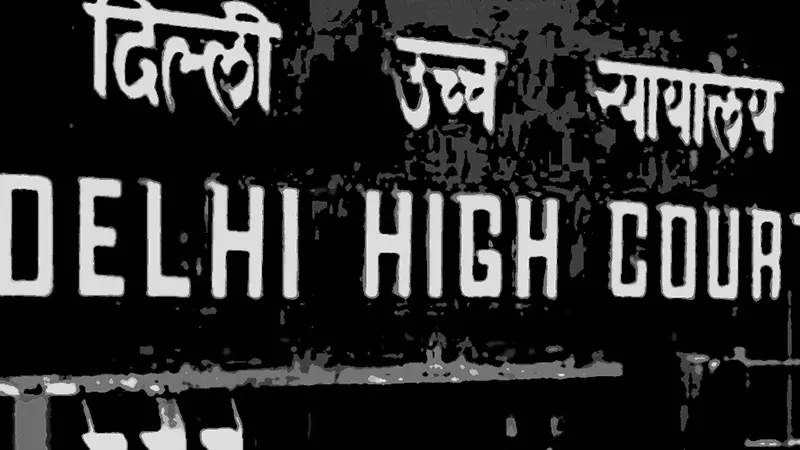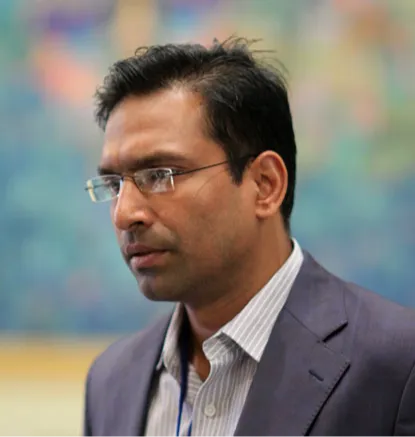-
CENTRES
Progammes & Centres
Location

Delhi Chief Minister Arvind Kejriwal’s power tussle with Lieutenant Governor Najeeb Jung received a huge jolt on Thursday when the Delhi High Court ruled that the real authority in National Capital Territory (NCT) is the Lt. Govenor (LG). The High Court Bench, headed by Chief Justice G. Rohini, dismissed eight of total nine petitions filed by the Kejriwal Government on routine issues relating to the exercise of legislative power and executive control in the administration of National Capital Territory of Delhi. In effect, the court declared Delhi government’s series of decisions, ranging from issues such as commissions of inquiry in the CNG fitness scam, illegalities in the Delhi and District Cricket Association, decisions of the electricity regulatory commission for compensation to people for the disruption in power supply, as null and void since the same were made without the approval or views of the LG. The only relief was the appointment of public prosecutors where the court ruled the LG would have to act with the advice of the council of ministers. While the verdict is seen a serious blow to the ruling Aam Aadmi Party’s (AAP) mission to achieve statehood for Delhi, this is just a beginning of a long legal and political battle. The matter has now moved to the Supreme Court, the highest court of the country.
Read also: Statehood or Autonomy: Rethinking Governance in India’s CapitalThe Delhi High Court’s verdict should not come as a surprise. For a lay reader, Delhi might resemble a lot like a normal Indian State that has a legislative Assembly and a Chief Minister, but in reality, it is neither a State nor even a half-State. Delhi is a true blue Union Territory (UT), albeit with a legislature. The 69th Amendment to the Constitution, which conferred such a distinction upon Delhi in 1991, clearly states that while the elected government in Delhi enjoys the powers and privileges offered to all other States in India, these are of qualifying in nature. For instance, while the Article 239AA empowers Delhi’s elected government to legislate on all subjects included in the State List of Schedule VII, reserve subjects such as public order, police and land are out of its purview. Further, given its national capital status, the Parliament under the Article 239AA (3) (b) enjoys free hand to legislate on any subjects impacting on Delhi’s governance. The most serious limitation, however, is that by falling under the category of a union territory, the elected government has to share powers with the Lieutenant Governor (LG), a central government appointee who is designated as “Administrator”.
These sections meant, unlike a Governor of a State, the LG is the real power centre in the Union Territory. The High Court Bench has just reaffirmed this legality. For instance, the Article 239AA (4) clearly tilts the balance of power in favour of the LG. It reads that “in the case of difference of opinion between the LG and the council of ministers on any matter, the LG shall refer it to the President of India for decision and act according to the decision given thereon by the President and pending such decision, it shall be competent for the LG in any case where the matter, in his opinion, is so urgent that it is necessary for him to take immediate action, to take such action or to give such direction in the matter as he deems necessary.” Similarly, the Section 41 of the NCT Act confers wide ranging discretionary powers upon the LG and this discretion is for all matters that fall outside the purview of the powers conferred on the Legislative Assembly and in respect of which powers/functions are entrusted or delegated to him by the President. Further, clause 2 of the Section 41 provides that if any question arises as to whether any matter is or is not a matter in which the LG is required to exercise his discretion, the decision of the LG thereon shall be final. Thus, in every sense, LG’s office acts as a rival power centre in the national capital.
Another major provision that comes in the way of the elected government is the Transaction of Business of the Government of NCTD Rules, 1993. These rules, laid down by the President (read: Home Ministry) under the Section 44 of the GNCTD Act, and pertaining to the functioning of bureaucrats and ministers, are heavily biased in favour of the LG. Further, the vagueness of the Rules allows the Home Ministry (an arm of Union Government) to liberally interpret and reframe them. The clearest example of its misuse came when the Home Ministry on May 21, 2015 unilaterally amended the Business Rules that deprived the elected chief minister any say on issues around the appointment and transfer of officials. The Home ministry had done a similar act earlier with regard to the appointment of a temporary chief secretary. In short, the 1993 Business Rules clearly goes in favour of the LG (which in effect allows the Union Government a free hand), thereby further undermining the authorities of an elected government. Although the Transaction of Business Rules have been heavily criticised as “unconstitutional” (particularly the Rule 55 which deals with the appointment of high officials) by legal luminaries, including Soli Sorabjee and Justice Mukul Mudgal, no ruling government at the Centre, for obvious reasons, has made efforts to end the areas of ambiguities.
The above illustration of powers (read limitations) carved out for the government in India’s National Capital Territory raises a pertinent question: with such a limited mandate, do we need an elected government in Delhi?
The Delhi High Court Bench has delivered a verdict based on the technicalities, and it is within its right. Now the Supreme Court may dwell upon the broader constitutional principles, including federalism and the general norms governing a national capital. It may serve well for the highest court to look at some of the global examples (read best practices) of organising governance and power sharing arrangements in the national capitals.
According to 239AA (4) “There shall be a Council of Ministers...in the legislative Assembly, with the Chief Minister at the head to aid and advise the Lieutenant Governor in the exercise of his functions in relation to matters with respect to which the Legislative Assembly has power to make laws, except in so far as he is, by or under any law, required to act in his discretion.”
The views expressed above belong to the author(s). ORF research and analyses now available on Telegram! Click here to access our curated content — blogs, longforms and interviews.

Niranjan Sahoo, PhD, is a Senior Fellow with ORF’s Governance and Politics Initiative. With years of expertise in governance and public policy, he now anchors ...
Read More +